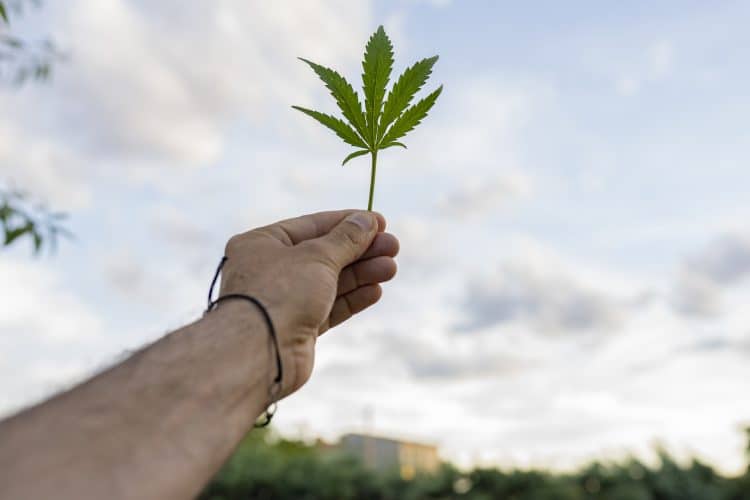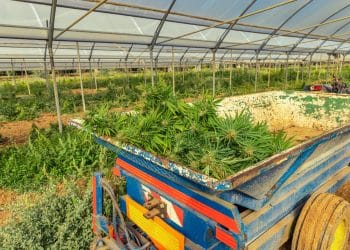According to recent statistics, the global cannabis market is valued at around $27.7 billion, with the market projected to increase to $82.3 billion by 2027. [1] This is unsurprising, considering the cannabis industry is massive, with many moving bodies comprising legal cultivators and producers, independent industrial standards bodies, consumers, regulators and researchers, and ancillary products and services.
With the cannabis industry sector continuing to grow from strength to strength, it should come as no shock that there have been significant developments in the US and global cannabis industry sector in the past few months. In this blog, readers will learn about the latest news in the US cannabis industry sector that is notable.
What Is The Latest News From The Cannabis Industry Sector?
Every day, new news about the cannabis industry is released. Below, we’ve rounded up a few of the top stories that should interest those eager to learn more about the current developments underway and how they impact consumers and producers.
Ohio Is Making Moves Towards Legalizing Recreational Cannabis
Ohio is moving towards legalizing recreational cannabis. The state’s Division of Cannabis Control has started accepting applications for dual licenses, allowing existing medical dispensaries to also sell recreational cannabis. This move aims to broaden access and curb the illicit market.
As of Friday, June 7th, 2024, the Ohio State Division of Cannabis Control began accepting applications for new dual licenses, allowing existing medical dispensaries to sell non-medical cannabis. It is unknown how long licensing approvals will take, but experts believe that the state could see sales of recreational cannabis products by mid-June.
As of now, only medical dispensaries will be allowed to sell non-medicinal cannabis products, but it is a significant move toward wholly legalizing recreational cannabis. This is especially true considering the new law that was passed allowing adults 21 and older to buy and hold a maximum of 2.5 ounces of cannabis.
Michigan has surpassed California’s Cannabis Market
For years, California politicians boasted, and cannabis advocates boasted that the state is home to the biggest legal cannabis market globally.
Unfortunately for the state, new data released by BDSA, a cannabis analytics firm, suggests that California is no longer the biggest seller of legal weed. According to reported data, Michigan has taken over the mantle for the state selling the most cannabis in the US.
The firm’s findings revealed that in March 2024, California sold 21.3 million cannabis products, while Michigan sold 22 million. These products include items like vape pens and flower but not individual user paraphernalia like pipes and rolling papers.
However, although California might not be the state selling the most cannabis products anymore, this does not mean they won’t reclaim the title in the coming months. In addition, California still brings in more money than any other US state from cannabis sales. It is estimated that in the first three months of 2024 alone, California sold $1 billion worth of cannabis, while Michigan – its now closest contender – only sold $786 million worth of cannabis during the same period.
AI Is Being Used To Make Cannabis Cultivation Smarter
It is becoming increasingly popular for indoor cannabis cultivators to use AI and machine learning technology like cameras, alarms, and sensors to maintain optimal growing conditions. There are two primary reasons indoor cannabis cultivators are turning toward implementing machine learning and artificial intelligence technology.
The first reason is that consistency is key when growing cannabis, especially for indoor producers. With the help of AI, growers can maintain consistency across facilities in different states. This is because AI tech allows cultivators to monitor and manage their crops remotely.
The second reason is that machine learning and AI technology are reducing costs. Cannabis growing is a costly business with labor, energy, and other resources incredibly expensive. Using AI allows cultivators to significantly reduce costs as there is a decreased need for manual labor and reduced energy needs.
While it might not be the be-all and end-all solution yet, more cultivators will likely soon begin implementing machine learning and AI technology into their growing projects.
New York Is Experiencing Cannabis Regulatory Changes
Marijuana operators in New York are more than happy with New York Gov. Kathy Hochul’s efforts to replace the state’s potency tax on cannabis with a flat excise tax.
As of June 1st, 2024, the potency tax has been replaced with the 9% flat excise tax, allowing retail pricing to drop, benefiting consumers. The tax change also benefits operators who were paying in excess of 25% to 30% in tax based on average market pricing.
The potency tax made pricing on certain products excessively high, with products like tinctures experiencing a $60 markup per unit. With the tax change, operators will now have the opportunity to enjoy profitability by reinvesting in marketing and growth.
Essentially, the tax changes allow small and big cannabis companies in New York to better serve their communities with more variety and lower costs, as pricing on the backend is reduced.
President Biden’s Administration Announced A Rescheduling Of Cannabis
President Biden’s administration has announced a significant policy shift regarding rescheduling cannabis under federal law. The current US classification of cannabis as a Schedule I substance puts it alongside drugs like heroin and LSD. This shift, which is the federal government’s biggest in 50 years, will see cannabis being moved to a Level III drug.
The proposed rescheduling from Level I to Level III aims to reflect the growing body of evidence supporting the proven medical benefits of cannabis and to address the evolving public and political perspectives on its use. More people are for legalizing cannabis than against it in many states on the fonts of medical and recreational use, so this change is important.
The historic change will harmonize federal policy with state laws where cannabis is legal, reducing the legal complexities and barriers faced by businesses and consumers in the cannabis industry.
Prominent Marijuana Brand Stiiizy Is Facing A Lawsuit
According to a lawsuit filed by a still unknown California high school student, the popular marijuana brand Stiiizy is “marketing dangerous, high potency marijuana vaporizers” to youth. The lawsuit alleges that the brand has knowingly and deliberately triggered a public health crisis among teenagers with its internet and social media marketing that is aimed at getting teenagers and young adults to use the brand’s products.
The plaintiff who filed the lawsuit stated that the brand’s products caused them to go ‘berserk’ in August 2022, when they were 15. It is unknown what damages are being sought, and based on the court docket; there is no indication that Stiizy has been served with a lawsuit yet.
However, the suit alleges that the brand has failed to warn consumers of the very real risks of using their cannabis products. It also alleges negligence, fraud, and product-led design defects. San Francisco-based Rouda Feder Tietjen & McGuinn law firm, which is representing the family and teen, issued a statement saying that the suit: “seeks to hold Stiiizy accountable for the severe and ongoing impact of the mental health issues associated with this defective product.”
The brand is no stranger to controversy, so many are interested to see how the lawsuit plays out and what it could mean for other companies marketing cannabis products to young adults.
Missouri Is Trying To Expand Its Cannabis Industry
As part of the state’s efforts to expand its cannabis industry after it was upended for months after more than 60,000 cannabis products were recalled in 2023, Missouri has implemented a second lottery round.
This lottery picked 48 cannabis microbusiness applicants to receive a permit. It is believed that 24 microbusinesses received retail permits and 33 received wholesale licenses. There were more than 2,000 applications for retail and wholesale licensing and permits.
This lottery is part of three random lotteries undertaken by the Missouri Department of Health & Senior Services (DHSS) that will be held over 18 months. By the end of it, 144 microbusiness licenses will be issued to cannabis retailers and wholesalers.
Part of the reason for the lotteries is to ensure sales grow to rival or surpass the $1.3 billion in sales secured last year in 2023 after the state launched its adult-use market. Another reason is to ensure widespread recall doesn’t again occur, upending the industry a second time.
Florida Hemp Industry Wins Big After Governor Vetoes Proposed Ban
Florida’s cannabis regulation received a blow when Republican Gov. Ron DeSantis vetoed the proposed ban that would have effectively outlawed numerous hemp-derived products currently in the market.
The governor’s reasoning behind the veto of Bill 1698 passed by the state legislature in March 2024 was that although the bill’s “goals are commendable,” passing it would have “imposed debilitating regulatory burdens on small businesses and almost certainly failed to achieve its purposes.”
The bill aimed to limit how much hemp-derived delta-9 THC was allowed in products. According to Politico, the Florida hemp industry aggressively lobbied DeSantis to veto the bill since it would only allow retailers and producers to sell products with no more than 5 milligrams of delta-9 THC per serving per 50-milligram container. With the bill vetoed there are no such limitations.
New Study Confirms Cannabis Dispensaries Increase Home Values
As cannabis has become more popular, more dispensaries have been developed and, many in residential areas. This has led numerous homeowners to worry that a licensed cannabis business will negatively impact home property values.
A recent study by Will Begeny has proven that home values don’t depreciate when cannabis growers and retailers open dispensaries. In fact, data broadly indicates that dispensaries are helping to elevate home values in cities with average home prices that are significantly lower than in surrounding areas.
On average, home values increase by two percentage points once an established dispensary starts servicing an area. Study findings suggest that property values increase because dispensaries are creating commercial districts around themselves. This allows everything around them to increase in value at a level of growth beyond that of conventional commercial districts.
The Wrap-Up On The Latest News From The Cannabis Industry Sector
After reading these news stories, you should be caught up on the latest happenings in the Cannabis industry. As news continues to unfold surrounding the US and global cannabis sectors, we will endeavor to keep you up to date.












